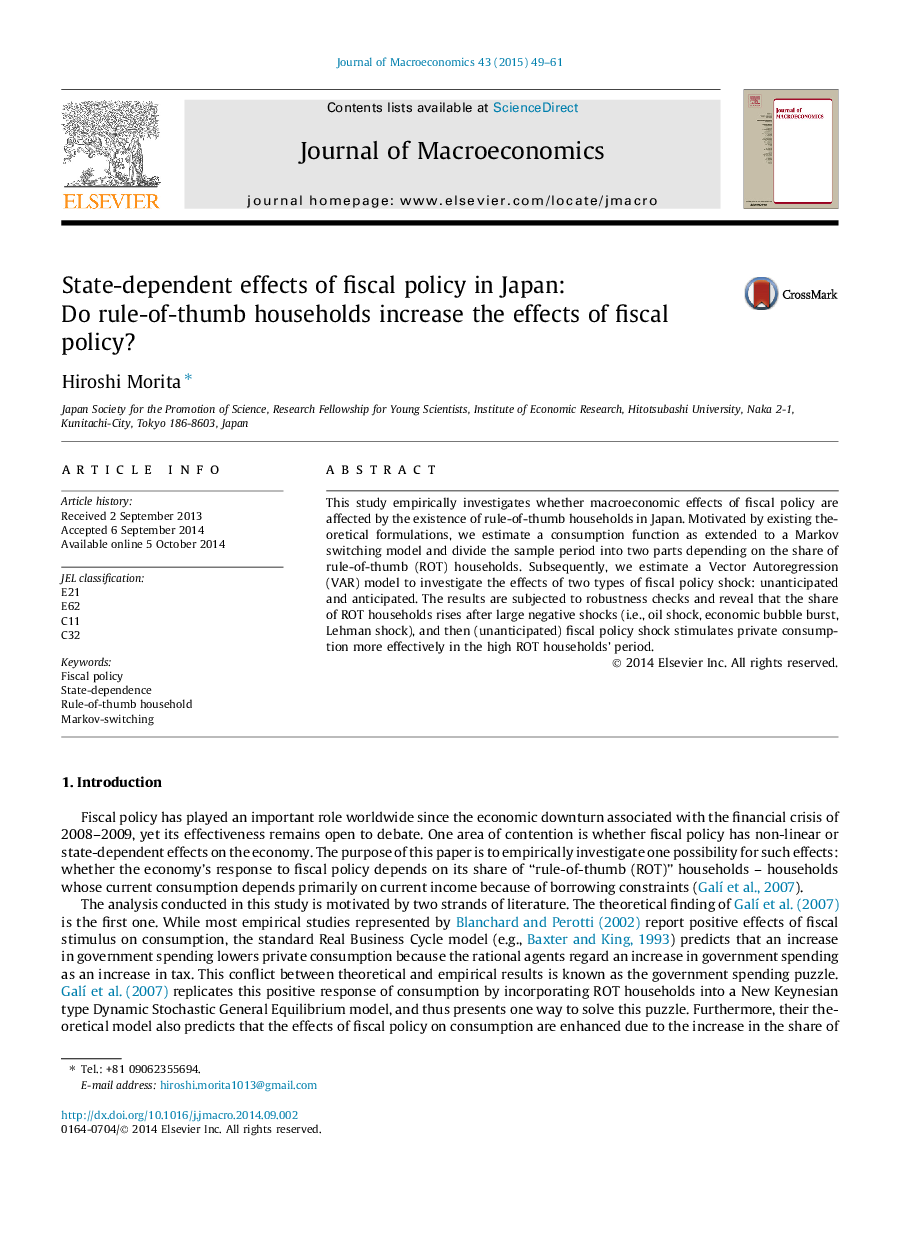| Article ID | Journal | Published Year | Pages | File Type |
|---|---|---|---|---|
| 965300 | Journal of Macroeconomics | 2015 | 13 Pages |
Abstract
This study empirically investigates whether macroeconomic effects of fiscal policy are affected by the existence of rule-of-thumb households in Japan. Motivated by existing theoretical formulations, we estimate a consumption function as extended to a Markov switching model and divide the sample period into two parts depending on the share of rule-of-thumb (ROT) households. Subsequently, we estimate a Vector Autoregression (VAR) model to investigate the effects of two types of fiscal policy shock: unanticipated and anticipated. The results are subjected to robustness checks and reveal that the share of ROT households rises after large negative shocks (i.e., oil shock, economic bubble burst, Lehman shock), and then (unanticipated) fiscal policy shock stimulates private consumption more effectively in the high ROT households' period.
Related Topics
Social Sciences and Humanities
Economics, Econometrics and Finance
Economics and Econometrics
Authors
Hiroshi Morita,
